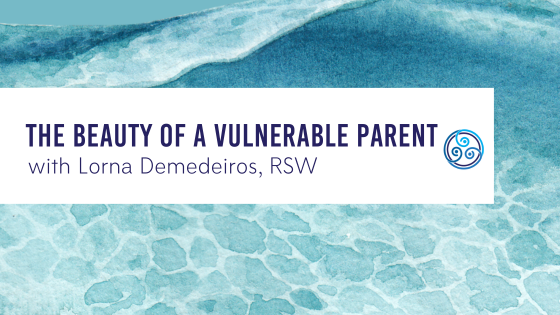As parents, we’ve all been there – we’ve just asked for shoes to be put on for the fifth time, or for
someone to take another bite, or we’ve just heard possibly the sassiest, rudest comment in the history
of the world, and we are ready to EXPLODE. Do our kids even notice all of the hard work that goes into
raising them?! Could they not give us one modicum of respect, for once?!
The truth is, your children are always looking for ways to connect with you, despite it seeming like they
just want to get on your nerves. According to John Bowlby’s Attachment Theory (McLeod, 2023)
“children come into the world biologically pre-programmed to form attachments with others, because
this will help them to survive.” So how do we respond with connection when they’re grinding on our last
nerve? The counterintuitive answer is, we get VULNERABLE.
Our kids need to know that we feel emotions, make mistakes, get overwhelmed just like them, and even
more importantly, they need to see what we do next. They are learning how to regulate their emotions
by watching us. We have the adult, fully-developed brain and nervous system, they don’t.
So, some things to try:
- Bedtime is pretty significant for kids, because they’re in a dark room, away from you (if you’re
not bedsharing or co-sleeping), and it’s a long time until the next morning. Despite our
exhaustion at the end of the day, taking time to sit with them in bed, and ask them: “Is there
anything that happened today that I need to apologize for?” This gives your child an opportunity
to bring up something they wouldn’t otherwise know how to, and a beautiful opportunity for
repair in your attachment as they drift off to sleep. Other things to say at bedtime: “I’m so glad
to be your parent”, “You’re so special to me”, “I’ll kiss this stuffie, so if you miss me in the night,
you can have that kiss when you need it.” - During the rush of getting out of the house, assuming your child has no attention span and
setting them up for success can help. Putting their shoes/backpack/jacket by the door, one pile
per child, so everything they need to put on is in one place (I know this won’t always happen) - My personal go to for sluggish breakfast eaters is called “snacks in the van”, where I have a
somewhat bigger snack like a Bear Paw or Oatmeal Bar, or allow them to take the cereal they
want dry in a Ziploc bag. Hey, whatever works, right? - I say this without shame: My kids are young enough not to be stinky in the morning, so they
change into the next day’s clothes at bedtime the night before. Yes, you’re welcome.
So in these chaotic moments, naming your emotions can help. “Wow, Mommy was really feeling rushed
this morning, I’m sorry I yelled more than I should. That’s my responsibility to work on.” “Mommy’s
brain can’t think well with multiple people talking, I’m just going to wait until you’re all done before
answering more questions.” “Daddy just needs a quick time out to breathe, he’s feeling overwhelmed.”
By doing this, we teach our kiddos that it’s okay to express emotions appropriately, and we can model
for them how to regulate effectively, making it possible to navigate life’s constant, stressful moments.
Anything else you’ve found that works? Leave a comment for other parents, let’s share the knowledge!



